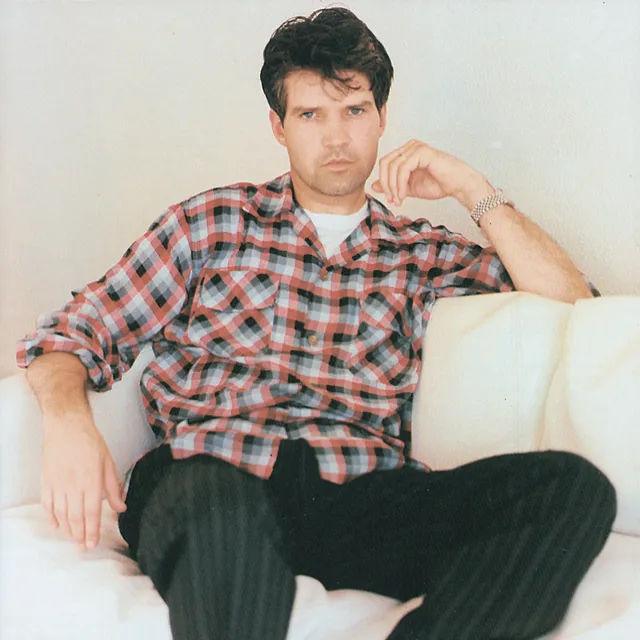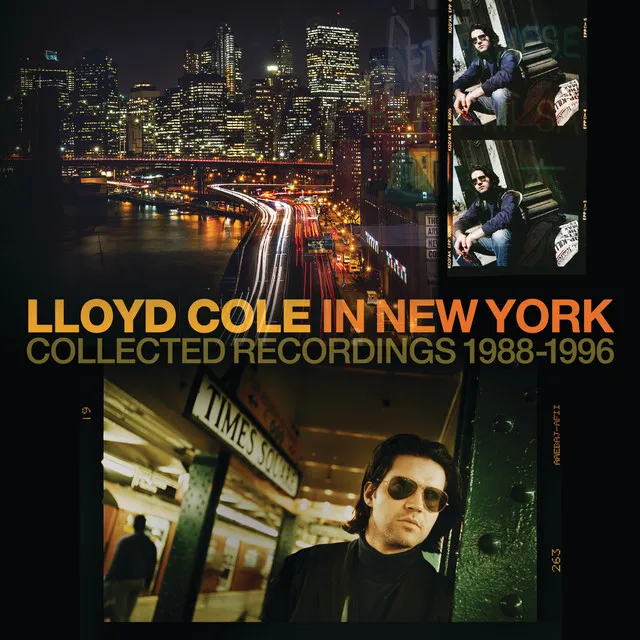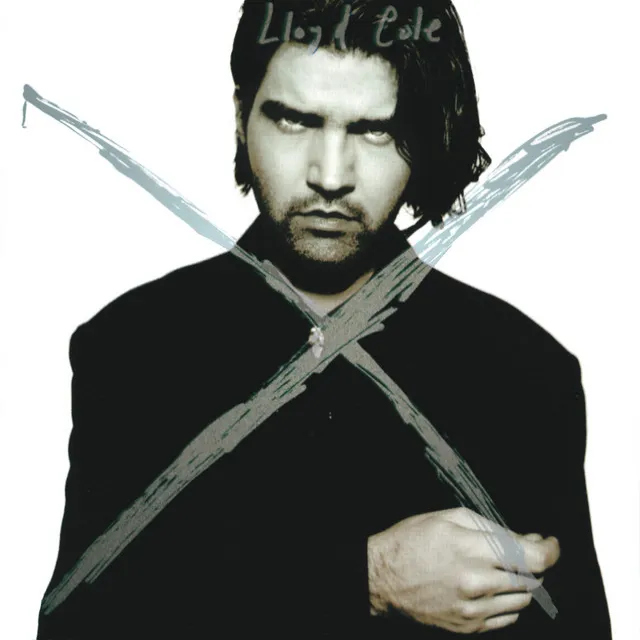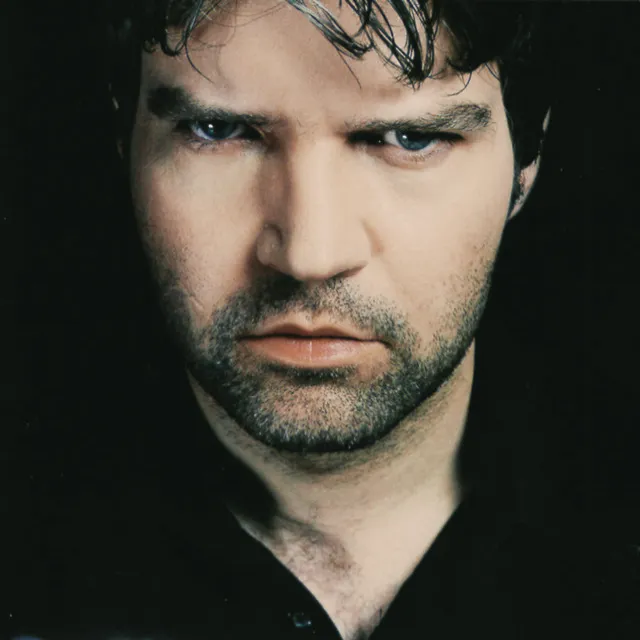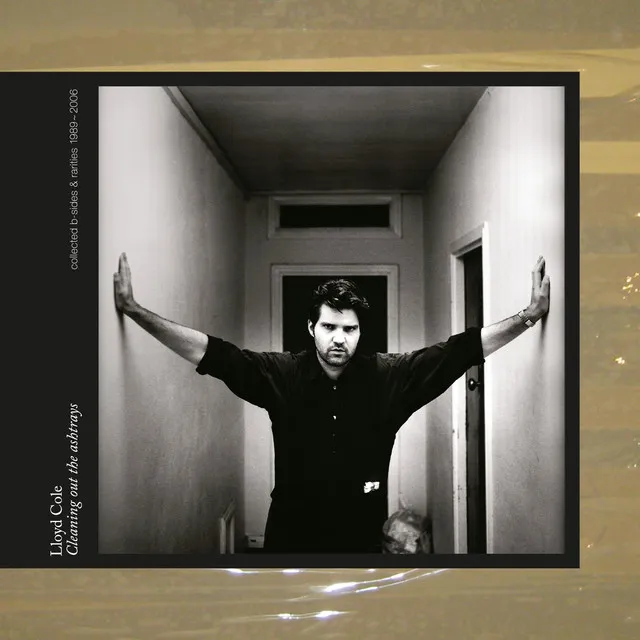Singer/songwriter Lloyd Cole's cuttingly literate lyrics, unabashedly romantic stance, and knack for melodies both simple and ornate form a solid base for his frequent genre shifts. Starting off fronting the Commotions and delivering some of the '80s most iconic jangle pop songs -- like "Perfect Skin" and the quintessential Rattlesnakes album -- Cole soon undertook a solo career that didn't stay in one place for long. He went from straightforward rock on 1990's self-titled album to lushly orchestrated pop on 1991's Don't Get Weird on Me Babe; he swerved into jangle pop on 1995's Love Story, then he settled down to make country rock-inspired music for a time before delving into electronics for a record of duets with Hans-Joachim Roedelius on 2013's Selected Studies, Vol. 1. Albums made in the wake of this newfound interest, like 2023's On Pain, merged the warm songcraft of earlier work with the colder textures of electronic pop.
Born January 31, 1961 in Buxton, England, Lloyd Cole formed the Commotions in 1982 while studying philosophy at the University of Glasgow. Originally a large soul band, the group soon trimmed itself down to a quintet that included keyboardist Blair Cowan, guitarist Neil Clark, bassist Lawrence Donegan, and drummer Stephen Irvine. Their crisp sound paired with the high quality of Cole's songwriting earned the Commotions a contract with Polydor, and in 1984, they debuted with Rattlesnakes, a wry, heartfelt record of jangling guitar pop stuffed with references to the likes of Jules et Jim, Simone de Beauvoir, Norman Mailer, and On the Waterfront. "Perfect Skin," the shimmering first single, reached the U.K. Top 30. Produced by the hit making team of Alan Winstanley and Clive Langer, 1985's Easy Pieces was a slicker effort that included the singles "Lost Weekend" and "Brand New Friend," both of which earned significant airplay.
Following the release of 1987's Mainstream, Cole disbanded the Commotions and moved to New York City to establish himself as a solo performer. There he joined forces with noted session drummer Fred Maher, who enlisted ex-Voidoid Robert Quine on guitar and an up-and-coming singer/songwriter named Matthew Sweet to play bass for Cole's eponymously titled 1990 solo debut, which continued much in the vein of his work with the Commotions. Released in 1991, Don't Get Weird on Me Babe marked a major artistic shift, as the entire second half of the album explored lush, string-sweetened ballads, arranged by Paul Buckmaster (known for his work with Elton John). Never content to be tied to any one sound, Cole worked with producer Adam Peters on 1993's Bad Vibes -- a lyrical dark album whose production sought to meld psychedelia and electronics. The record proved to be a little too experimental for some of his fans, and perhaps Cole himself, since 1995's Love Story turned out to be a return to the more minimalist, folk-rock-inspired work with the Commotions -- the LP not coincidentally marked Cole's reunion with the band's guitarist, Neil Clark. It also landed Cole on Top of the Pops, as the twangy ballad "Like Lovers Do" made a surprise splash on the UK charts.
After the album's release, Cole formed a new group called the Negatives with the help of guitarists Jill Sobule and Michael Kotch, bassist Dave Derby and drummer Rafa Maciejak. They gigged around NYC for a couple of years, then in 2001 released a self-titled album that featured production credits from Stephen Street, who famously worked with the Smiths. The following year, Cole released two lower-key albums of solo material: Etc (Lost Songs, Tunes 1996-2000) and the entirely instrumental, electronic Plastic Wood.
Cole resurfaced as a solo artist in 2004 with the understated Music in a Foreign Language. Recorded largely at home on his computer, the album featured a cover of Nick Cave's "People Ain't No Good." In 2006, Anti-Depressant -- on which Cole compellingly dealt with the positive and negative aspects of aging -- was released. The album featured appearances by Sobule, Derby, and ex-Commotions member Neil Clark. Derby co-produced 2010's Broken Record, an upbeat, country rock-adjacent that featured contributions from Joan Wasser and Fred Maher, followed four years later. The 2013 album Standards was co-funded by fans and featured contributions from Fred Maher and Matthew Sweet.
After seemingly getting into a steady groove as a respected singer/songwriter, Cole took a hard left and made a deep dive into electronic music. He teamed with Krautrock legend Hans-Joachim Roedelius on 2013's Selected Studies, Vol. 1, a collection of low-key keyboard duets, then in 2014 curated Kollektion 02, a retrospective compilation of Roedelius' music.
Cole released an interesting electronic record, Selected Studies, Vol.1 in March 2013 with the Krautrock legend Hans-Joachim Roedelius. He followed those mold-breaking releases with 1D Electronics 2012-2014, a collection of solo modular synthesizer experiments originally recorded for his collaboration with Roedelius.
Taking a break from his burgeoning career as a synth boffin, Cole spent time working on a box set comprised of the complete recordings made with the Commotions. Collected Recordings was released in 2015, and he and his backing band the Leopards hit the road to promote it. Hardly missing a beat, Cole released another box set in 2017, In New York: Collected Recordings 1988-1996, made up of four albums, a full album of unreleased songs, and a disc of demos. Returning to new projects, Cole found a middle ground between his usual singer/songwriterly approach and his growing body of electronic projects with 2019's Guesswork, a set of songs performed almost entirely on synthesizers, though the occasional guitars, as played by Cole and old mate Clark, do break through. Unable to play live shows due to COVID-19 he responded by spending a week in June of 2020 creating electronic pieces using a modular synthesizer and a random digital noise generator called an Ieaskul F. Mobenthey Dunst. The results were released as Dunst in October. Cole's 2023 album On Pain was a step closer to synth pop, with the majority of the songs built on spare synths, treated vocals, and lyrics that largely dealt in impressions instead of his usual graceful storytelling. Also helping out were former Commotions Clark and Cowan, who co-wrote four of the album's songs. Cole recorded much of the album himself in his home studio, then finalized and mixed it with producer Chris Hughes in England. ~ Jason Ankeny, Rovi
